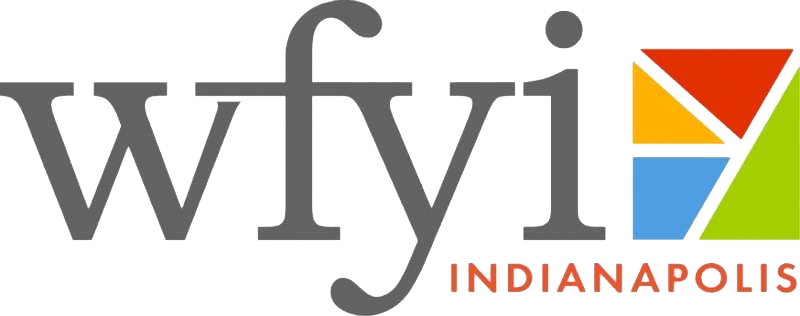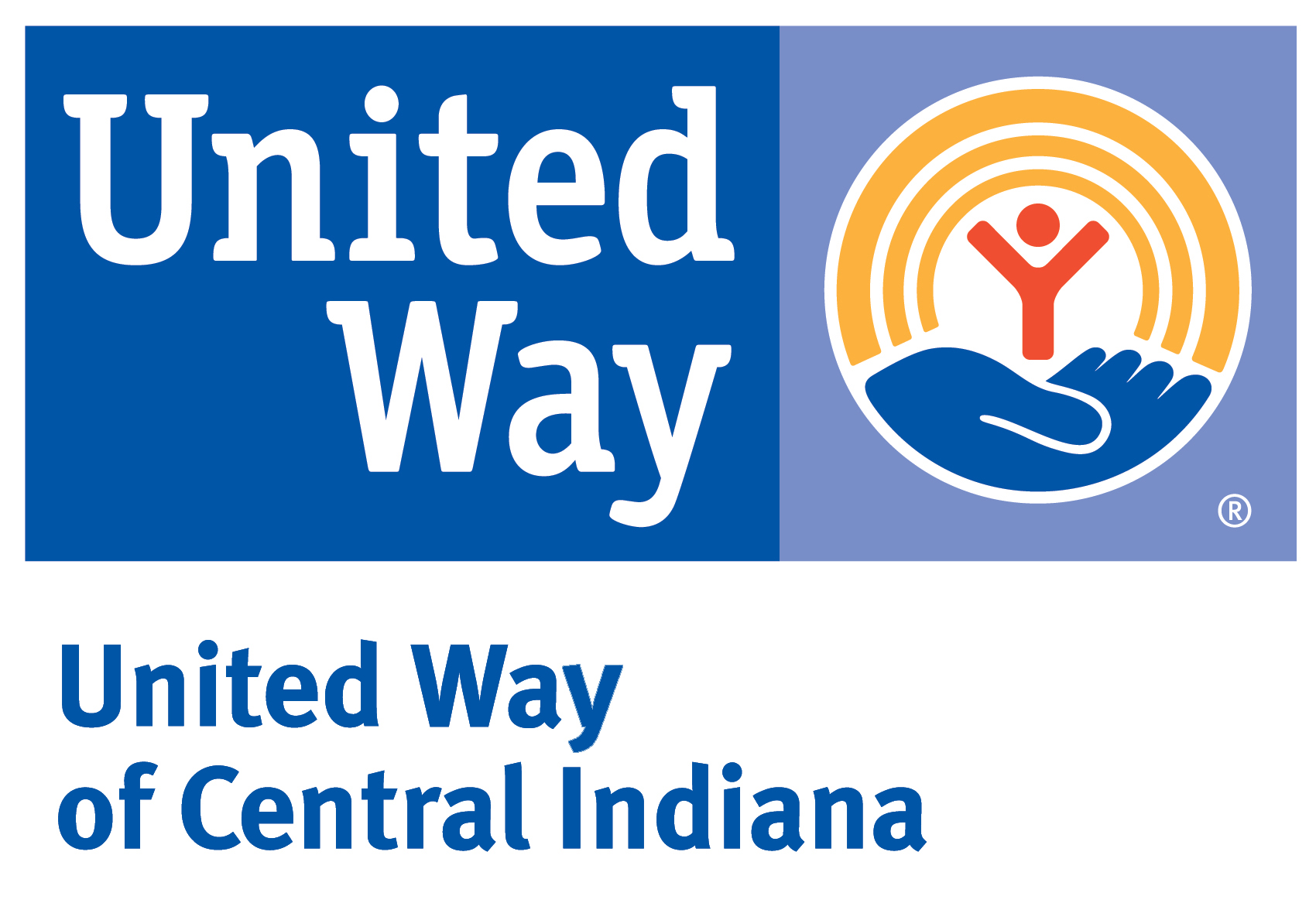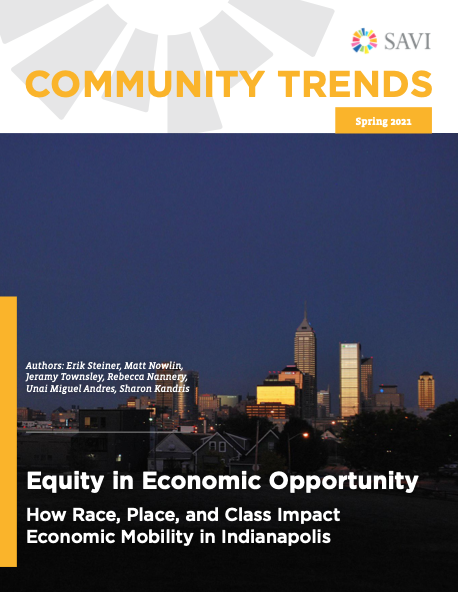Equity in Economic Opportunity
SAVI Talks - March 25, 2021Building on research by Harvard’s Raj Chetty and his team, we are developing new insights and highlighting findings about opportunity in Indianapolis neighborhoods. The average child born into a high-income family in Indianapolis earned $50,000 in household income when they were about 35. Children born to low-income families grew up to earn $27,000.
- Indianapolis’ level of opportunity for low-income children is lower than all but two of the largest U.S. cities. Only Atlanta and Charlotte have worse outcomes than Indianapolis.
- The average Black child born in Indianapolis earns $9,000 less than the average White child. There is a spatial disparity too: In many neighborhoods, children who grew up there earn less than $20,000 per year. In other neighborhoods, children born at the same income level grow up to earn $35,000 or more.
- Neighborhoods that are segregated clearly have lower opportunity outcomes for children. People born into Redlined neighborhoods have less economic opportunity, even when controlling for their parents’ income.
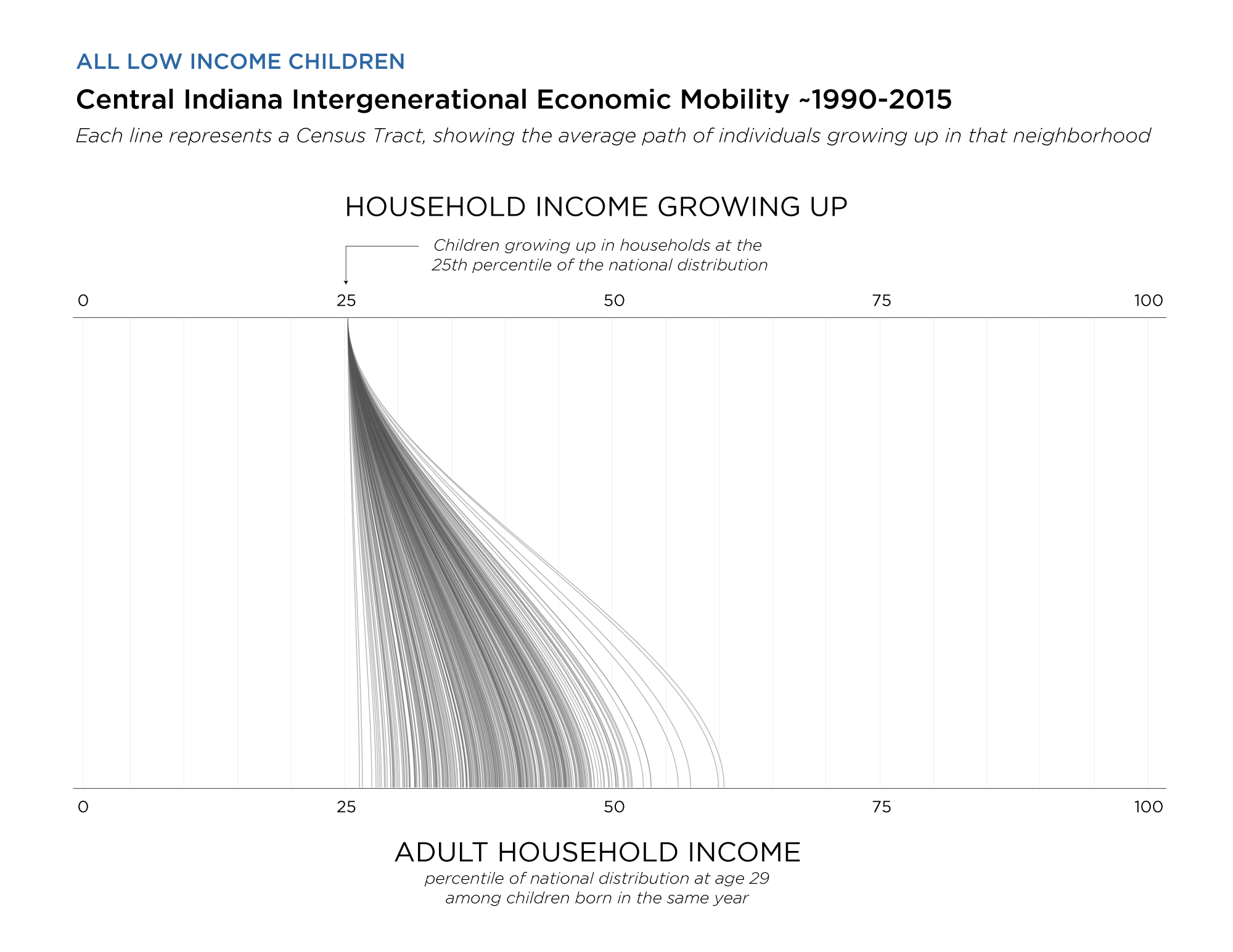
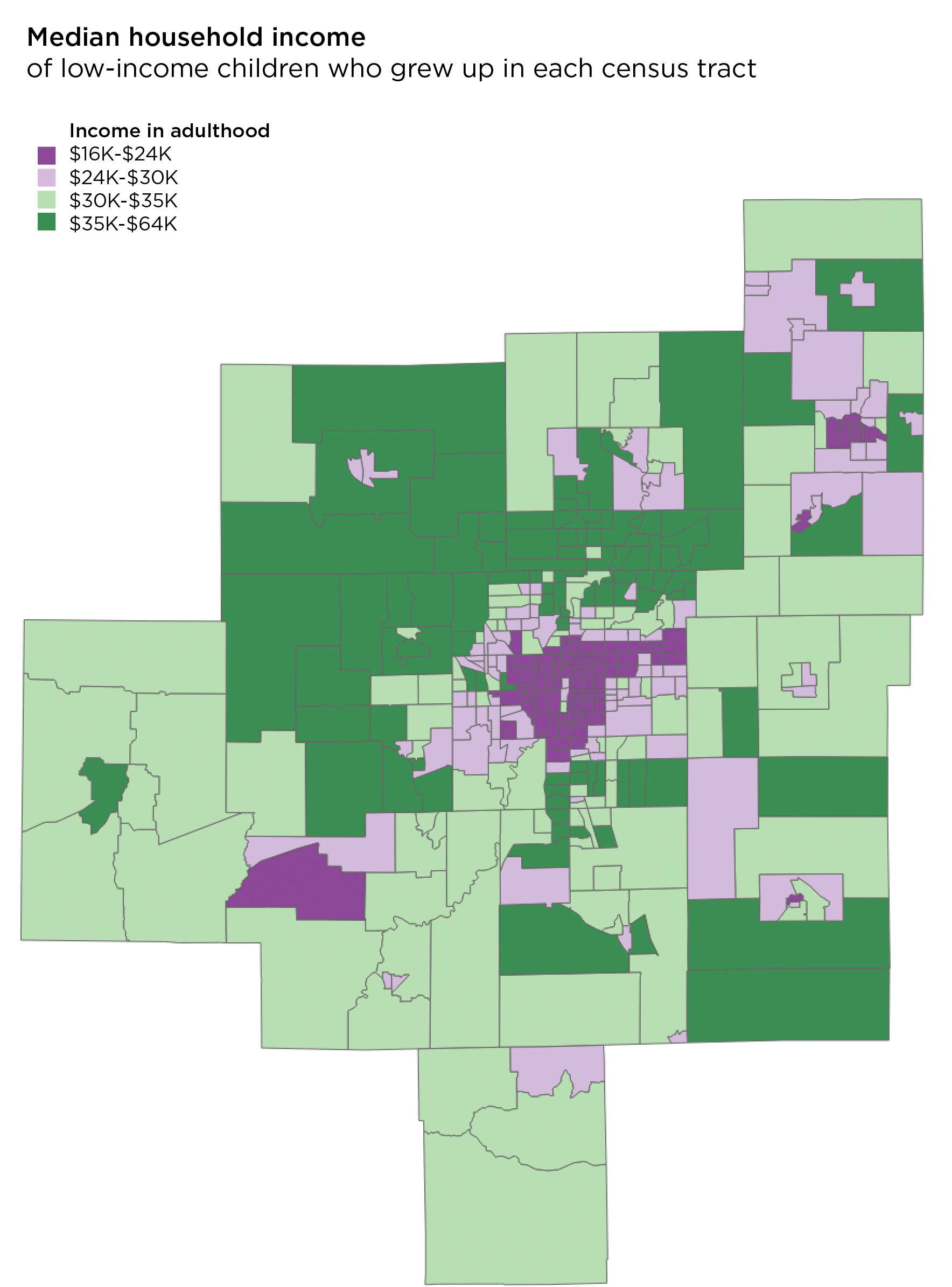
Articles and Story Maps
Explore other research and interactive content we have developed around equity.
Income, Unemployment, and Health Insurance in Indianapolis
This is part of our IndyVitals blog series, exploring the data behind IndyVitals.org. You may be aware that the U.S. has a disproportionately large uninsured population when compared to countries with similar developed economies. While many of these countries have...
What Type of Businesses are Located in Your Neighborhood?
This is part of our IndyVitals blog series, exploring the data behind IndyVitals.org. Have you ever wondered exactly what type of businesses are offered in your neighborhood or an area in which you’d like to live and be close to your job? Interested in food services,...
A Guide to Traversing Indianapolis Without a Car
This is part of our IndyVitals blog series, exploring the data behind IndyVitals.org. Marion County in Central Indiana has noted a trend, especially among young people, of a preference for a car-less existence and mixed zones of residential, green space, and...
The Rich Live Longer Everywhere. For the Poor, Geography Matters.
Article You May Have Missed: The April 11, 2016 issue of the The New York Times featured the article, "The Rich Live Longer Everywhere. For the Poor, Geography Matters." This topic resonates with the Polis Center and SAVI as we prepared a report on a similar...
Trends in Crime: Does Perception Match Reality?
Crime and public safety are important social and political issues faced by cities and communities across the country. Contrary to public perception, over the past two decades crime rates across theUnited States have decreased dramatically (Wolfers, 2014; McCarthy,...
Worlds Apart: Gaps in Life Expectancy in the Indianapolis Metro Area
Two communities that are both situated within the Indianapolis metropolitan area and separated by only 28 miles are in reality worlds apart. One sits in a northeastern suburb of Indianapolis. Its residents have a life expectancy of 83.7 years, rivaling the top-ranking...
ASK JAY: What’s trending in your zip code?
A Q&A session with SAVI's own Jay Colbert Hey Jay, what took so long? Jay: Data consumers (you) love the idea of data by ZIP Codes. Everyone knows which ZIP Code they live in, and people often know many other ZIP Codes around. And, they aren’t a bad size either:...
WHAT’S TRENDING IN…neighborhood information systems
Every spring and fall, SAVI staff attends the National Neighborhood Indicators Partnership (NNIP) meeting, which was held in Pittsburgh this year. It’s a great opportunity to collaborate with and learn from the NNIP’s diverse and extensive group of partners in 35...
What Census Tract is that?
A user recently asked me – “In which census tract is this particular address located?” SAVI can tell you. Also, if you have some mysterious census tract number, SAVI can show you where it is. Both of these tasks can be accomplished using SAVI’s Community Profile...
How I Benefited from Interning at SAVI
By Rishika Chauhan, SAVI Research Assistant Intern I am a full-time graduate student at IUPUI and am pursuing master’s in nonprofit management at the School of Public and Environmental Affairs (SPEA). Part of the school’s curriculum requirement is to participate...
Authors
Sharon Kandris
Associate Director,
The Polis Center
Jay Colbert,
Data Manager,
The Polis Center
Jeramy Townsley,
Visiting Research Analyst,
The Polis Center
Matt Nowlin,
Research Analyst,
The Polis Center
SAVI Talks Panelists
Patrice Duckett
Exec. Director
Fay Biccard Glick Crooked Creek Neighborhood Center
Amy Nelson
Exec. Director
Fair Housing Center of Central Indiana
Pamela Ross
VP of Opportunity, Equity & Inclusion
Central Indiana Community Foundation
SAVI Talks Moderator
Jill Sheridan
Health & Science Reporter
Indiana Public Broadcasting, WFYI
Event Partners
